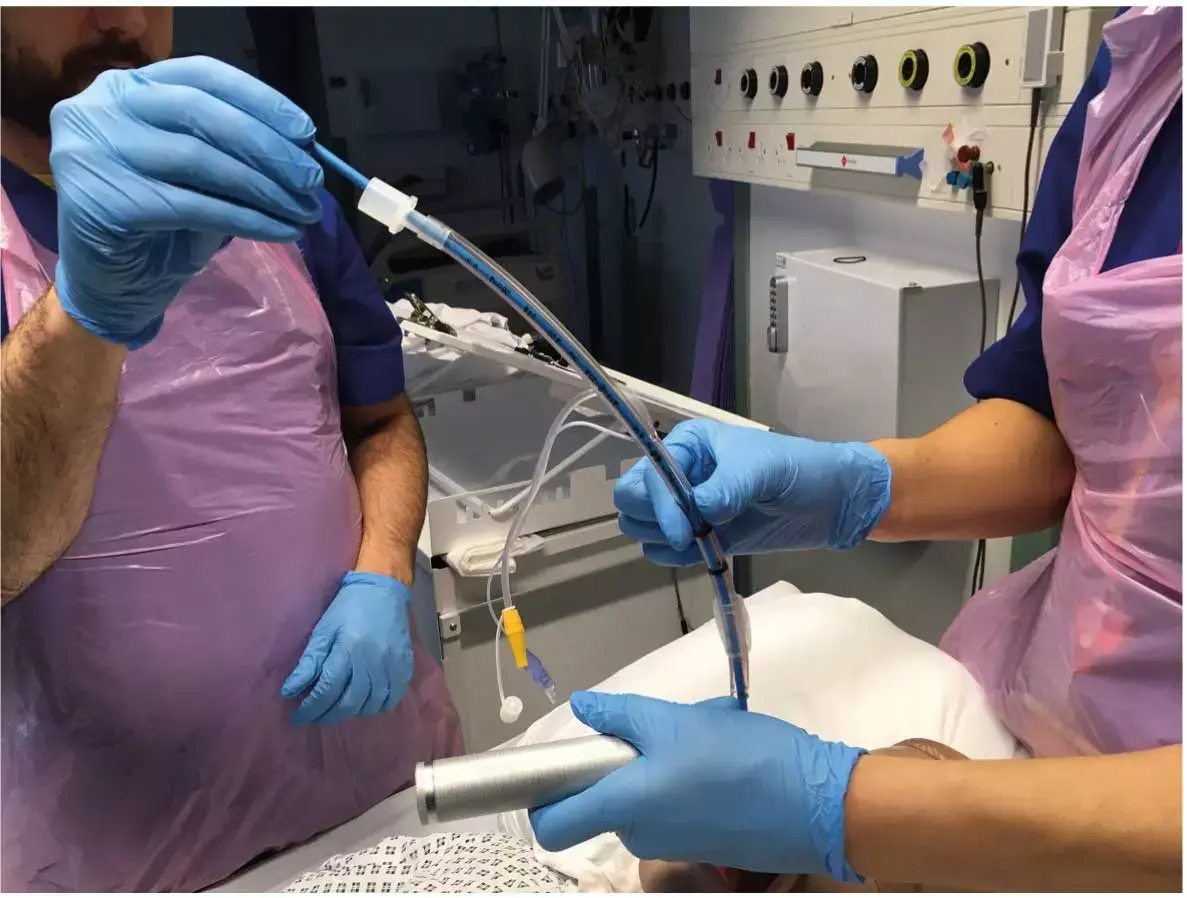- Home
- Medical news & Guidelines
- Anesthesiology
- Cardiology and CTVS
- Critical Care
- Dentistry
- Dermatology
- Diabetes and Endocrinology
- ENT
- Gastroenterology
- Medicine
- Nephrology
- Neurology
- Obstretics-Gynaecology
- Oncology
- Ophthalmology
- Orthopaedics
- Pediatrics-Neonatology
- Psychiatry
- Pulmonology
- Radiology
- Surgery
- Urology
- Laboratory Medicine
- Diet
- Nursing
- Paramedical
- Physiotherapy
- Health news
- Fact Check
- Bone Health Fact Check
- Brain Health Fact Check
- Cancer Related Fact Check
- Child Care Fact Check
- Dental and oral health fact check
- Diabetes and metabolic health fact check
- Diet and Nutrition Fact Check
- Eye and ENT Care Fact Check
- Fitness fact check
- Gut health fact check
- Heart health fact check
- Kidney health fact check
- Medical education fact check
- Men's health fact check
- Respiratory fact check
- Skin and hair care fact check
- Vaccine and Immunization fact check
- Women's health fact check
- AYUSH
- State News
- Andaman and Nicobar Islands
- Andhra Pradesh
- Arunachal Pradesh
- Assam
- Bihar
- Chandigarh
- Chattisgarh
- Dadra and Nagar Haveli
- Daman and Diu
- Delhi
- Goa
- Gujarat
- Haryana
- Himachal Pradesh
- Jammu & Kashmir
- Jharkhand
- Karnataka
- Kerala
- Ladakh
- Lakshadweep
- Madhya Pradesh
- Maharashtra
- Manipur
- Meghalaya
- Mizoram
- Nagaland
- Odisha
- Puducherry
- Punjab
- Rajasthan
- Sikkim
- Tamil Nadu
- Telangana
- Tripura
- Uttar Pradesh
- Uttrakhand
- West Bengal
- Medical Education
- Industry
Case of Negative Pressure Pulmonary Edema After Difficult Intubation in patient of JRA: A report

Difficult tracheal intubation (DTI) is frequent in patients with juvenile rheumatoid arthritis (JRA) due to atlas and axis dislocation, cervical spine fusion as a consequence of arthritis, glottis stenosis caused by cricoarytenoid cartilage inflammation, and a palate deformity.
Negative pressure Pulmonary edema (NPPE) is induced by forced inspiration against a blockage in the upper airway, which leads to considerable negative pressure on the lung and pulmonary edema. Recently published article describes a case of NPPE that occurred as a consequence of Difficult tracheal intubation in a patient with juvenile rheumatoid arthritis who had surgery for a spigelian hernia.
A 35-year-old man presented with persistent stomach discomfort and a lump in the left lower quadrant. Abdominal computed tomography (CT) was used to detect a Spigelian hernia, and surgery was planned. Despite meticulous preoperative preparation and intubation technique, fiber-optic intubation and laryngeal mask ventilation were unsuccessful; nevertheless, nasal fiber-optic tracheal intubation was successfully conducted afterwards. Upper airway constriction produced NPPE during induction. The CT results revealed bilateral infiltration and widespread ground-glass opacity, consistent with pulmonary edema. Surgery for the spigelian hernia was postponed due to the patient's need for acute care due to NPPE. The patient's respiratory condition gradually improved after 48 hours of initiating treatment.
Airway treatment during general anesthesia in individuals with rheumatoid arthritis might be complicated because to temporomandibular joint and cervical spine abnormalities. The patient's spinal malformation was so severe in this instance that he was unable to be positioned for spinal anesthesia. As a result, general anesthesia was selected. Techniques for intubating these individuals have been debated. Video laryngoscopy and fiber-optic bronchoscopy have been shown to be very beneficial in achieving tracheal intubation in such individuals . Alternatively, when an airway securement challenge is predicted, endotracheal intubation through fiber-optic bronchoscopy while the patient is awake is regarded the safest option.
NPPE is a noncardiogenic pulmonary edema that is mostly caused by elevated negative intrathoracic pressure induced by upper airway blockage. It is estimated to occur in 0.1% of instances of general anesthesia with tracheal intubation, most often due to laryngospasm . Additionally, some traits, most notably a short neck, difficulties intubating, endotracheal tube occlusion, a history of obstructive sleep apnea, obesity, acromegaly, and a history of upper aerodigestive tract surgery, might enhance the risk of developing this condition. According to past research, the main therapy for NPPE is positive-pressure ventilation and supplementary oxygenation . The most often used adjunctive therapy is diuretics. While anesthesiologists and intensivists are likely to be acquainted with NPPE, other medical experts may not be. As a result, surgeons must recognize NPPE as a possible complication in all patients who develop hypoxia during the perioperative period, and perioperative strategies can be improved through close collaboration and sharing of patient clinical information among surgeons, pediatricians, and anesthesiologists. The most critical component in avoiding NPPE may be adequate ventilation. It is critical that patients with rheumatoid arthritis get management in a setting equipped with sophisticated airway technology and skilled professionals in its usage.
Reference-
Negative-Pressure Pulmonary Edema After Difficult Endotracheal Intubation in a Patient with Juvenile Rheumatoid Arthritis Undergoing Spigelian Hernia Surgery: A Case Report. Daisuke Masui A* , et al. Am J Case Rep 2022; 23:e934678. DOI: 10.12659/AJCR.934678
MBBS, MD (Anaesthesiology), FNB (Cardiac Anaesthesiology)
Dr Monish Raut is a practicing Cardiac Anesthesiologist. He completed his MBBS at Government Medical College, Nagpur, and pursued his MD in Anesthesiology at BJ Medical College, Pune. Further specializing in Cardiac Anesthesiology, Dr Raut earned his FNB in Cardiac Anesthesiology from Sir Ganga Ram Hospital, Delhi.
Dr Kamal Kant Kohli-MBBS, DTCD- a chest specialist with more than 30 years of practice and a flair for writing clinical articles, Dr Kamal Kant Kohli joined Medical Dialogues as a Chief Editor of Medical News. Besides writing articles, as an editor, he proofreads and verifies all the medical content published on Medical Dialogues including those coming from journals, studies,medical conferences,guidelines etc. Email: drkohli@medicaldialogues.in. Contact no. 011-43720751


